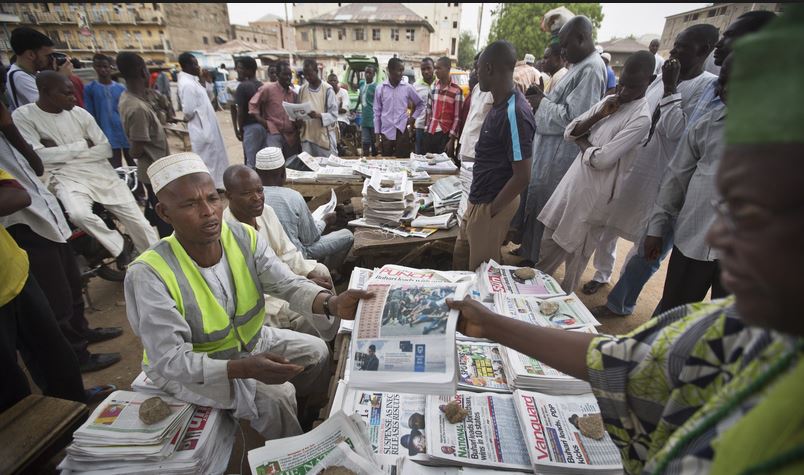The emergency visit to embattled Borno state by President Muhammadu Buhari to commiserate with the government and people of the state over terrorists attack dominates the headlines of the Nigerian press on Thursday.
The plan to forge ahead with the amendment to the constitution by the National Assembly and the performance of the Nigerian Stock Exchange (NSE) are the other trending stories in the local press.
This Day said President Muhammadu Buhari flew directly to Maiduguri, the Borno State capital, from Ethiopia, where he had gone to attend the African Union (AU) Summit, to console the state and its people over the carnage in Auno, a village in the state.
It said that Boko Haram members killed no fewer than 30 people on Sunday night in the state.
The Nation newspaper also reported that the president urged the community leaders to cooperate with the leaders to end the Boko Haram insurgency.
The Leadership newspaper said the Senate Constitution Amendment Committee would consider the 2014 National Conference report and that of the Mallam Nasir el-Rufai-led Committee on restructuring the polity in its new assignment.
The 2014 Conference report, which was a product of far-reaching decisions by prominent Nigerians during the administration of former President Goodluck Jonathan, was headed by retired Chief Justice of Nigeria, Justice Idris Legbo Kutigi, the Leadership newspaper said.
The Daily Trust reported progress in the Nigerian Stock Exchange, saying that shares, banking and financing attracted the highest share of the N31.96 trillion ($87.96 billion) worth of investment inflows into Nigeria in six years.
The Punch reported that some gunmen attacked Bakali village in Fatika district of the Giwa Local Government Area of Kaduna State, killing no fewer than 21 people.
Channels Television reported that the convener of #RevolutionNow Protest, Omoyele Sowore will be re-arraigned on fresh charges by the Federal Government.
The Guardian said there are no plans yet to privatise Nigeria’s ailing refineries, at least not for the 2020 fiscal year, meaning that the importation of refined products with the attendant subsidy cost, which has eaten up so much of revenue meant for distribution amongst the three tiers of government, will remain.
MM/GIK/APA


